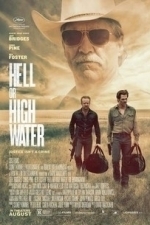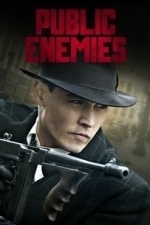Search
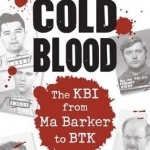
Beyond Cold Blood: The KBI from Ma Barker to BTK
Book
Ma Barker and Pretty Boy Floyd once shot their way across the state, and Bonnie and Clyde were known...
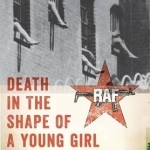
Death in the Shape of a Young Girl: Women's Political Violence in the Red Army Faction
Book
In the early 1970s, a number of West German left-wing activists took up arms, believing that...
Phillip McSween (751 KP) rated Hell or High Water (2016) in Movies
Mar 11, 2019
Classic
Two brothers rob banks in west Texas to pay off overdue loans before their family home is foreclosed on.
Acting: 10
Beginning: 10
Characters: 10
From the first scene in the beginning with Tanner (Ben Foster) and Toby (Chris Pine), I knew I was going to like the two brothers. One’s a loose cannon while the other is more level-headed and calculated. They argue like typical brothers because they are so different and their interactions remind you of typical sibling hate/love. As a viewer, their personalities worked so well for me because you realize both were needed throughout the movie. Sometimes you needed cool, other times crazy was definitely needed to get the two out of a rough scrape.
I also enjoyed Jeff Bridges character playing the role of Sheriff Marcus, the area’s dedicated peacemaker. He speaks with a quick drawl straight out of an Eastwood western. He is overly truthful to a hilarious extent. He is on his way to retirement and feels like catching Tanner and Toby could be his last bit of peace.
Cinematography/Visuals: 9
Conflict: 7
While there truly are some impactful intense moments that help drive the narrative, Hell Or High Water is more drama than it is an action film. You do get a fair share of bank robberies, car chases, and shootouts. It just would have been nice if they had showed a bit more of that. Some of the parts that dragged on a bit would have served well with a bit more conflict.
Genre: 8
A powerful story about family helping family. Time will tell, but I think it’s a story that will keep its power years from now. The storytelling and direction is just as strong as any of my all-time favorites. Hell Or High Water packs a potent punch.
Memorability: 8
Pace: 10
Plot: 10
The bank robbery genre has been done and redone, but not quite like this. From its setting to the backdrop of the plot, this movie paves its own way within a crowded and successful genre. It succeeds with memorable dialogue and making every single scene count towards a definitive end.
Resolution: 10
The final scene features a conversation between Marcus and Toby. It’s hands-down the most memorable scene in the entire film as you get to see how this chain of events has ultimately affected both characters. They have both gained and lost and both face ghosts that will haunt them for the rest of their lives. It’s a scene that stuck with me long after I watched it.
Overall: 92
Set against a sprawling, yet compacted west Texas, Hell Or High Water gives you everything you look for in a movie. Memorable scenes abound keeping the movie entertaining and fresh. If you haven’t seen it yet, it’s a classic.
Acting: 10
Beginning: 10
Characters: 10
From the first scene in the beginning with Tanner (Ben Foster) and Toby (Chris Pine), I knew I was going to like the two brothers. One’s a loose cannon while the other is more level-headed and calculated. They argue like typical brothers because they are so different and their interactions remind you of typical sibling hate/love. As a viewer, their personalities worked so well for me because you realize both were needed throughout the movie. Sometimes you needed cool, other times crazy was definitely needed to get the two out of a rough scrape.
I also enjoyed Jeff Bridges character playing the role of Sheriff Marcus, the area’s dedicated peacemaker. He speaks with a quick drawl straight out of an Eastwood western. He is overly truthful to a hilarious extent. He is on his way to retirement and feels like catching Tanner and Toby could be his last bit of peace.
Cinematography/Visuals: 9
Conflict: 7
While there truly are some impactful intense moments that help drive the narrative, Hell Or High Water is more drama than it is an action film. You do get a fair share of bank robberies, car chases, and shootouts. It just would have been nice if they had showed a bit more of that. Some of the parts that dragged on a bit would have served well with a bit more conflict.
Genre: 8
A powerful story about family helping family. Time will tell, but I think it’s a story that will keep its power years from now. The storytelling and direction is just as strong as any of my all-time favorites. Hell Or High Water packs a potent punch.
Memorability: 8
Pace: 10
Plot: 10
The bank robbery genre has been done and redone, but not quite like this. From its setting to the backdrop of the plot, this movie paves its own way within a crowded and successful genre. It succeeds with memorable dialogue and making every single scene count towards a definitive end.
Resolution: 10
The final scene features a conversation between Marcus and Toby. It’s hands-down the most memorable scene in the entire film as you get to see how this chain of events has ultimately affected both characters. They have both gained and lost and both face ghosts that will haunt them for the rest of their lives. It’s a scene that stuck with me long after I watched it.
Overall: 92
Set against a sprawling, yet compacted west Texas, Hell Or High Water gives you everything you look for in a movie. Memorable scenes abound keeping the movie entertaining and fresh. If you haven’t seen it yet, it’s a classic.
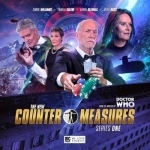
The New Counter-Measures: Series 1
John Dorney, Guy Adams, Ian Potter and Christopher Hatherall
Book
Four new investigations for Sir Toby Kinsella and his specialist team. 1. Nothing to See Here by Guy...
Chris Sawin (602 KP) rated Public Enemies (2009) in Movies
Jun 22, 2019
The year is 1933 and bank robberies are at an all time high. John Dillinger, Baby Face Nelson, and Pretty Boy Floyd are at the top of their game. In the public eye, robbers are looked at as heroes instead of criminals. Dillinger enjoys the fruit of his labor to the fullest until the day Melvin Purvis is put in charge of the FBI division down in Chicago. Word traveled fast of how one of FBI's top agents (Purvis) took down Pretty Boy Floyd and hopes are high that he can help in the newly announced "war on crime." Once Purvis arrived in Chicago, the crime wave of the 30's that was on a steady uprise took a drastic decline. Bank robberies were never the same as Dillinger's friends began dropping like flies. As Dillinger's motto of not thinking about tomorrow since he's too busy enjoying today comes back to haunt him, he soon realizes that he can only hide for so long and that the feds will catch up with him sooner or later.
The most noticeable thing about the film is its cinematography. Michael Mann has used the same method of shooting Public Enemies with HD digital cameras like he did with Collateral. This could be a hassle to some viewers as the picture isn't as shaky as it was in something like Cloverfield, but isn't as crystal clear and steady as you may have found in some of Mann's earlier work like Heat or most other films, for that matter. Perspective plays a huge role in this film. Certain lighting seems to come off better being shot in HD digital and it certainly shows, but the imperfections seem to give the film more character. Some people might throw the word, "edgy," around, but we'll settle on saying this style of filming feels like a more realistic approach. It makes the audience feel like they're actually amongst these gangsters during their heyday.
It almost felt like Christian Bale didn't really want to be there. Between this and Terminator: Salvation, he's really lacking the charisma and talent he's shown in films like The Prestige and The Machinist or even American Psycho. Maybe he's just hit his peak and has nothing else up his sleeve to wow audiences. Bale has hit an eye-catching slump, which is hard to say since this is coming from a long time fan. As long as he continues to be cast in big budget films though and those films wind up doing extremely well at the box office, then not many people are going to notice a difference in the actor's lackluster performance.
Johnny Depp, on the other hand, stole every scene he was in. His cockiness and confidence in his abilities in what he does just gave life to Dillinger that makes you generally like him. You want to see him escape as soon as he gets caught, pull off that next big robbery, and succeed at everything he does so he can run off with Billie Frechette (Marion Cotillard) and live happily ever after. His dialogue is also generally pretty incredible. In the scene where he's confronting Agent Purvis from behind bars, Dillinger is asking Purvis about what it was like to kill a man. How their eyes looked and how you can literally watch a man just drift away by staring into their eyes while they're dying. That that whole experience could keep a man up at night. Purvis asks Dillinger what keeps him up at night. Dillinger, who always seemed to be chewing gum, replies, "Coffee." Dillinger just felt like one of Depp's better acting roles, as of late. He showed more emotion than we're generally used to seeing from him and it was just an incredibly strong performance from the Oscar nominee.
The film has a lot of great dialogue, intriguing character interaction, and it's interesting watching the story unfold of how the crime wave of the 30s may have come to an end, but what really makes the film worth seeing is the shootouts. Any scene that begins with somebody holding a gun is worth getting excited over. There's a scene in the woods in the latter half of the film that is worth the price of admission alone. It takes place at night and everything is littered with darkness until the tommy guns make an appearance. The way the guns light up everything else around the characters firing them was a nice touch. Small explosions erupting from a chamber every time somebody pulled the trigger. This is some of the best gunfire to ever be filmed.
When it comes to Public Enemies, it is one of the best films of the year which is mentioned in at least one of the TV spots. Anyone who was a fan of Michael Mann's previous films (or gangster films, in general) will more than likely walk away from this film satisfied. Johnny Depp is still at the top of his game while Christian Bale seems to be winding down. Public Enemies is a film worthy of the summer blockbuster season which will satisfy the appetite of any fan of crime films.
The most noticeable thing about the film is its cinematography. Michael Mann has used the same method of shooting Public Enemies with HD digital cameras like he did with Collateral. This could be a hassle to some viewers as the picture isn't as shaky as it was in something like Cloverfield, but isn't as crystal clear and steady as you may have found in some of Mann's earlier work like Heat or most other films, for that matter. Perspective plays a huge role in this film. Certain lighting seems to come off better being shot in HD digital and it certainly shows, but the imperfections seem to give the film more character. Some people might throw the word, "edgy," around, but we'll settle on saying this style of filming feels like a more realistic approach. It makes the audience feel like they're actually amongst these gangsters during their heyday.
It almost felt like Christian Bale didn't really want to be there. Between this and Terminator: Salvation, he's really lacking the charisma and talent he's shown in films like The Prestige and The Machinist or even American Psycho. Maybe he's just hit his peak and has nothing else up his sleeve to wow audiences. Bale has hit an eye-catching slump, which is hard to say since this is coming from a long time fan. As long as he continues to be cast in big budget films though and those films wind up doing extremely well at the box office, then not many people are going to notice a difference in the actor's lackluster performance.
Johnny Depp, on the other hand, stole every scene he was in. His cockiness and confidence in his abilities in what he does just gave life to Dillinger that makes you generally like him. You want to see him escape as soon as he gets caught, pull off that next big robbery, and succeed at everything he does so he can run off with Billie Frechette (Marion Cotillard) and live happily ever after. His dialogue is also generally pretty incredible. In the scene where he's confronting Agent Purvis from behind bars, Dillinger is asking Purvis about what it was like to kill a man. How their eyes looked and how you can literally watch a man just drift away by staring into their eyes while they're dying. That that whole experience could keep a man up at night. Purvis asks Dillinger what keeps him up at night. Dillinger, who always seemed to be chewing gum, replies, "Coffee." Dillinger just felt like one of Depp's better acting roles, as of late. He showed more emotion than we're generally used to seeing from him and it was just an incredibly strong performance from the Oscar nominee.
The film has a lot of great dialogue, intriguing character interaction, and it's interesting watching the story unfold of how the crime wave of the 30s may have come to an end, but what really makes the film worth seeing is the shootouts. Any scene that begins with somebody holding a gun is worth getting excited over. There's a scene in the woods in the latter half of the film that is worth the price of admission alone. It takes place at night and everything is littered with darkness until the tommy guns make an appearance. The way the guns light up everything else around the characters firing them was a nice touch. Small explosions erupting from a chamber every time somebody pulled the trigger. This is some of the best gunfire to ever be filmed.
When it comes to Public Enemies, it is one of the best films of the year which is mentioned in at least one of the TV spots. Anyone who was a fan of Michael Mann's previous films (or gangster films, in general) will more than likely walk away from this film satisfied. Johnny Depp is still at the top of his game while Christian Bale seems to be winding down. Public Enemies is a film worthy of the summer blockbuster season which will satisfy the appetite of any fan of crime films.
Bob Mann (459 KP) rated Hell or High Water (2016) in Movies
Sep 29, 2021
“Sometimes a blind pig finds a truffle”.
One of the joys (and stresses) of the run up to the Oscar weekend is to try to catch all the major award films before the big event. As I bitched about in my BAFTA write-up, UK release dates do NOT make this an easy task, with some films like Paul Verhoeven’s “Elle”, featuring Best Actress nominee Isabelle Huppert, not released until mid March.
This week I have had the chance to catch up on two of the films with award potential that I missed at the cinema, and this is the write up of the first of those: “Hell or High Water”, was first released in September 2016, and what an excellent film it is.
Bank robberies have been featured in many hundreds of films since the early days of cinema: The Great Train Robbery for example dates back to 1903! More recent heist classics such as “Oceans 11”, “Die Hard”, “Run Lola Run” and “The Dark Knight Rises” tend towards the stylised end of the act. Where this film delivers interest is in aligning the protagonists’ drivers with the banking and mortgage ‘crimes’ featured in last year’s “The Big Short”. Add in to the movie Nutribullet a soupçon of the West Texan setting from Arthur Penn’s 1967 “Bonnie and Clyde”, turn it on and you have “Hell or High Water”.
Chris Pine (“Star Trek”) and Ben Foster (“Inferno“, “The Program“) play brothers Toby and Tanner Howard trying to rescue their deceased mother’s ranch from being foreclosed on by Texas Midlands bank. Rather than taking one of the “get out of debt” offers advertised on billboards – cleverly and insistently introduced in long panning highway shots – the brothers have their own financial plan: a scheme that involves early morning raids of the cash drawers of small-town Texas Midlands branches. But the meticulous planning of Toby, as the calm and intelligent one, are constantly at risk of upset by the unpredictable and violent actions of the loose-cannon Tanner.
Since the amounts of cash stolen are in the thousands rather than the millions, the FBI aren’t interested and the case is handed instead by aged and grumpy Texas Ranger Marcus Hamilton (Jeff Bridges, “True Grit”) and his partner Alberto (Gil Birmingham). The pair have a respectful relationship but one built around racial banter, with Hamilton constantly referring to Alberto’s Mexican/Comanche heritage. A cat and mouse game ensues with the lawmen staking out the most likely next hits. The sonorous cello strings of the soundtrack portend a dramatic finale, and we as viewers are not disappointed.
The performances of the main leads are all excellent, with Chris Pine given the chance to show more acting chops than he has had chance to with his previous Kirk/Jack Ryan characters. His chemistry with Ben Foster is just sublime. Similarly, Jeff Bridges and Gil Birmingham make for a formidable double act. It is Jeff Bridges though who has the standout performance and one that is Oscar nominated for Best Supporting Actor. (In fact with Michael Shannon also getting nominated in the same category for “Nocturnal Animals”, we can add ‘West Texan lawman’ to ‘Holocaust movies’ (a Winslet “Extras” reference there!) as the prime bait for Oscar nomination glory!)
The real winner here though is the whip-smart screenplay by Taylor Sheridan (“Sicario“) which sizzles with great lines: lines that make you grin inanely at the screen regularly through the running time.”In your last days in the nursing home, you’ll think of me and giggle” schmoozes Tanner to the pretty hotel check-in girl: a come-on clearly worth remembering as it delivers the goods, as it were.
The trick here is in building up a degree of empathy and sympathy for the characters on both sides. The ‘bad guys’ here are successfully portrayed as the banks. At the moment you can get 25/1 odds on this winning the Best Original Screenplay Oscar – but I would personally rate it right up there with “Manchester by the Sea“.
Deftly directed by Scot David Mackenzie (“Starred Up”) this is a film (the first of two!) that might well have elbowed it’s way into my Top 10 of 2016 if I’d seen it during its cinema release. Well worth catching on the small screen.
This week I have had the chance to catch up on two of the films with award potential that I missed at the cinema, and this is the write up of the first of those: “Hell or High Water”, was first released in September 2016, and what an excellent film it is.
Bank robberies have been featured in many hundreds of films since the early days of cinema: The Great Train Robbery for example dates back to 1903! More recent heist classics such as “Oceans 11”, “Die Hard”, “Run Lola Run” and “The Dark Knight Rises” tend towards the stylised end of the act. Where this film delivers interest is in aligning the protagonists’ drivers with the banking and mortgage ‘crimes’ featured in last year’s “The Big Short”. Add in to the movie Nutribullet a soupçon of the West Texan setting from Arthur Penn’s 1967 “Bonnie and Clyde”, turn it on and you have “Hell or High Water”.
Chris Pine (“Star Trek”) and Ben Foster (“Inferno“, “The Program“) play brothers Toby and Tanner Howard trying to rescue their deceased mother’s ranch from being foreclosed on by Texas Midlands bank. Rather than taking one of the “get out of debt” offers advertised on billboards – cleverly and insistently introduced in long panning highway shots – the brothers have their own financial plan: a scheme that involves early morning raids of the cash drawers of small-town Texas Midlands branches. But the meticulous planning of Toby, as the calm and intelligent one, are constantly at risk of upset by the unpredictable and violent actions of the loose-cannon Tanner.
Since the amounts of cash stolen are in the thousands rather than the millions, the FBI aren’t interested and the case is handed instead by aged and grumpy Texas Ranger Marcus Hamilton (Jeff Bridges, “True Grit”) and his partner Alberto (Gil Birmingham). The pair have a respectful relationship but one built around racial banter, with Hamilton constantly referring to Alberto’s Mexican/Comanche heritage. A cat and mouse game ensues with the lawmen staking out the most likely next hits. The sonorous cello strings of the soundtrack portend a dramatic finale, and we as viewers are not disappointed.
The performances of the main leads are all excellent, with Chris Pine given the chance to show more acting chops than he has had chance to with his previous Kirk/Jack Ryan characters. His chemistry with Ben Foster is just sublime. Similarly, Jeff Bridges and Gil Birmingham make for a formidable double act. It is Jeff Bridges though who has the standout performance and one that is Oscar nominated for Best Supporting Actor. (In fact with Michael Shannon also getting nominated in the same category for “Nocturnal Animals”, we can add ‘West Texan lawman’ to ‘Holocaust movies’ (a Winslet “Extras” reference there!) as the prime bait for Oscar nomination glory!)
The real winner here though is the whip-smart screenplay by Taylor Sheridan (“Sicario“) which sizzles with great lines: lines that make you grin inanely at the screen regularly through the running time.”In your last days in the nursing home, you’ll think of me and giggle” schmoozes Tanner to the pretty hotel check-in girl: a come-on clearly worth remembering as it delivers the goods, as it were.
The trick here is in building up a degree of empathy and sympathy for the characters on both sides. The ‘bad guys’ here are successfully portrayed as the banks. At the moment you can get 25/1 odds on this winning the Best Original Screenplay Oscar – but I would personally rate it right up there with “Manchester by the Sea“.
Deftly directed by Scot David Mackenzie (“Starred Up”) this is a film (the first of two!) that might well have elbowed it’s way into my Top 10 of 2016 if I’d seen it during its cinema release. Well worth catching on the small screen.
